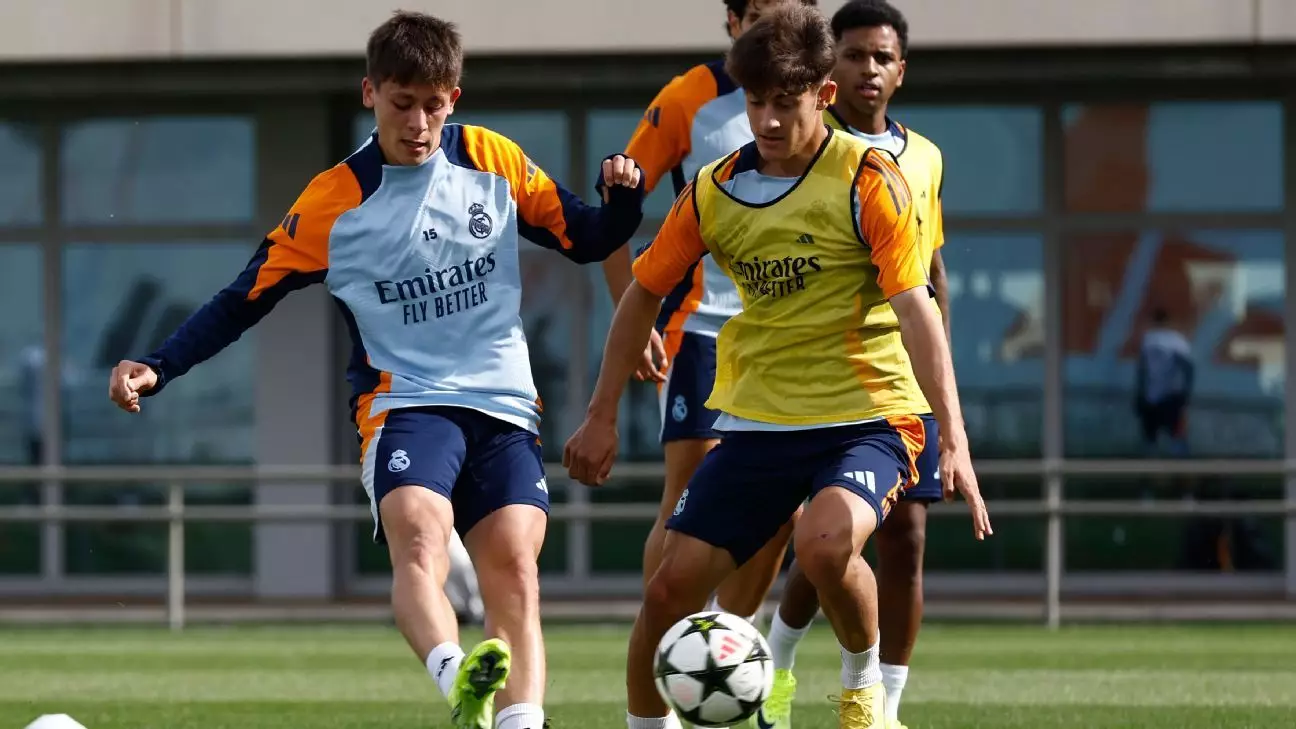Recently, Juventus Football Club experienced a disconcerting incident as one of their social media accounts fell victim to a cyber attack. This unfortunate event caught the attention of fans when a false announcement claimed that Turkish midfielder Arda Güler, currently playing for Real Madrid, had signed with the Italian giants. Despite the transfer window being closed, the buzz generated by the post left many followers confused and intrigued, underscoring how even a rumor can ignite excitement among a passionate fan base.
The fraudulent announcement was accompanied by a photo of Güler at an airport, with a seamless caption welcoming him to Juventus and heralding him as the next star of the team. This incident highlights not just the vulnerability of clubs to hacking but also the power of social media to rapidly disseminate information—whether factual or not—within the global realm of sports. Fans who eagerly look toward potential signings were left disappointed when Juventus later clarified the post’s authenticity, emphasizing that Güler would not be making a Serie A appearance anytime soon.
Impact on Club Reputation and Fan Trust
Events like this can have lasting effects on a club’s reputation and its relationship with supporters. Juventus’ immediate response to clarify the situation was crucial in maintaining transparency with their fan base. However, the difficulty lies in controlling the narrative once misinformation spreads. In today’s fast-paced news cycle, the initial shock of a rumor often overshadows later clarifications. For clubs like Juventus, which boast loyal and invested followers, ensuring that accurate information reaches fans is paramount.
Moreover, this incident raises broader questions about the role of social media in modern football. The necessity for clubs to cultivate an authoritative online presence has never been greater, yet the potential for misinformation continues to pose a significant threat. Juventus’ experience serves as a cautionary tale regarding the importance of security and vigilance in managing social platforms.
Comparing Performance: Champions League vs. Serie A
On the pitch, Juventus has had a contrasting experience in the Champions League compared to Serie A. With a perfect record in Europe following two solid victories, their attacking prowess has shone brightly. However, domestically, their forward performance has been subpar, leading to questions about consistency. As manager Thiago Motta remarked, the discrepancy in their offensive output emphasizes a crucial point: strategy and execution can vary significantly depending on the competitive context.
Motta’s philosophy underscored the necessity of approaching every game with the same level of intensity and focus. The challenge of breaking down well-organized defenses is not unique to Juventus; it reflects a broader trend in football where defensive solidity often neutralizes attacking flair. Thus, clubs must adapt and innovate strategically to regain their cutting edge in domestic competitions.
Juventus’ hacking incident should serve as a reminder of the vulnerabilities that exist not only within the locked walls of high-profile clubs but also in the larger football ecosystem. Supporting a club is not just about on-field success; it’s about holistic trust in the organization. As fans navigate the digital landscape where news –both true and false– spreads like wildfire, clubs must invest in cybersecurity, foster trust through transparent communication, and maintain performance, hoping to restore and uphold that sacred bond with their supporters.

Leave a Reply